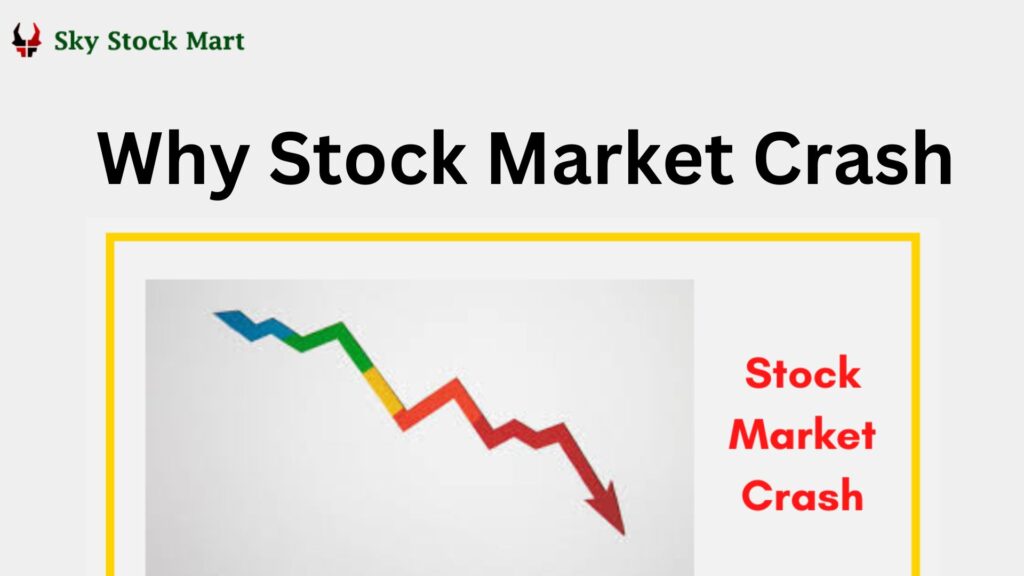Unraveling the Complex Web: Why Do Stock Markets Crash?
Introduction:
Why Stock Market Crash
The stock market, with its undulating highs and lows, is a dynamic entity that reflects the ebbs and flows of the global economy. However, the unsettling term “stock market crash” can send shivers down the spine of investors and economists alike. In this blog, we’ll delve into the intricate reasons behind why stock markets crash, Why Stock Market Crash exploring the contributing factors that can trigger these tumultuous events.
- Market Speculation and Overvaluation: One of the key culprits behind stock market crashes is the phenomenon of market speculation and overvaluation. When investors become overly optimistic and bid up prices beyond the intrinsic value of stocks, it creates a bubble. Eventually, this bubble bursts, leading to a sharp and sudden decline in stock prices.Why Stock Market Crash
- Economic Downturns and Recessions: Stock markets are highly sensitive to economic conditions. During periods of economic downturns or recessions, corporate profits may decline,Why Stock Market Crash leading to a widespread sell-off of stocks. Investors, fearing a prolonged economic slump, may rush to liquidate their holdings, exacerbating the market decline.
- Global Events and Geopolitical Uncertainty: Geopolitical events, such as political tensions, trade disputes, or natural disasters, can significantly impact stock markets. Sudden and unexpected global events create uncertainty, prompting investors to reevaluate their portfolios and adopt a more risk-averse stance, triggering a market downturn.
- Liquidity Crises: Lack of liquidity in the financial system can contribute to a stock market crash. If investors are unable to buy or sell assets easily, panic can ensue,Why Stock Market Crash leading to a rapid and steep decline in prices. Why Stock Market Crash Financial institutions, especially if highly leveraged, may face challenges in meeting their obligations, further amplifying the crisis.
- Interest Rate Changes: Central banks play a pivotal role in shaping economic conditions. When central banks raise interest rates to curb inflation or cool down an overheated economy, Why Stock Market Crash it can lead to higher borrowing costs for businesses and consumers. This, in turn, can impact corporate profits and investor sentiment, contributing to a market downturn.
- Technological Glitches and Trading Algorithms: In the digital age, the influence of technology on stock markets is undeniable. Automated trading algorithms, if not properly calibrated, can contribute to rapid and erratic market movements. Technological glitches, system failures, or algorithmic errors can trigger “flash crashes,” causing sudden and severe market disruptions.
- Financial Contagion: The interconnected nature of global financial markets means that problems in one sector or region can quickly spread to others. Financial contagion, where a crisis in one market triggers panic in others, can lead to a widespread sell-off, causing a stock market crash.
Conclusion:
While the stock market is inherently volatile, understanding the various factors that contribute to a crash is essential for investors and policymakers alike. A combination of speculative bubbles, Why Stock Market Crash economic downturns, global events, liquidity issues, interest rate changes, technological glitches, and financial contagion can create a perfect storm. In navigating the complexities of the stock market, being aware of these contributing factors is crucial for making informed investment decisions and building a resilient financial portfolio.


